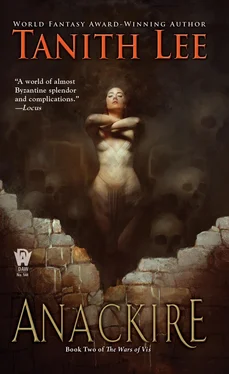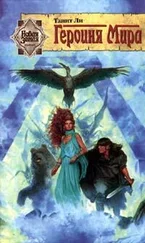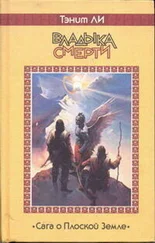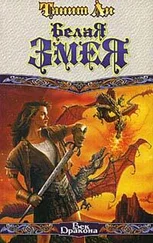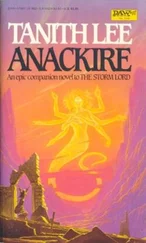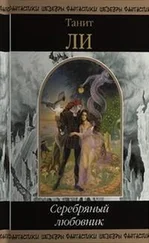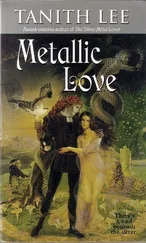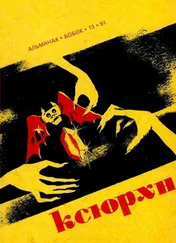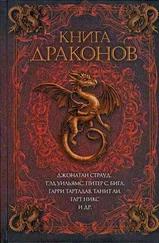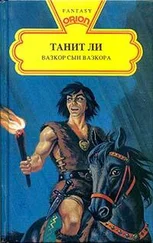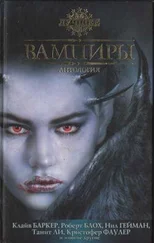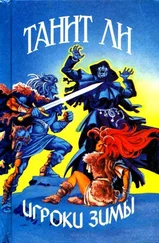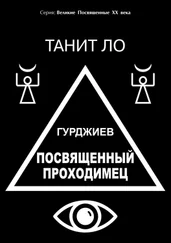“But this isn’t far from—” Rem hesitated.
“About two hours’ riding. We’ve been longer, circling, trying to get the dog to sort you out from wolf.”
“I didn’t realize I’d gone so far.”
“No.”
“Where are your father’s men?”
“Just up there. I think we should leave here now, if you can manage it. They’ve about had enough.”
“And so have you, I take it.”
Lur Raldnor went on looking down at him. He said flatly, “Whatever I did to offend you—”
“You didn’t do anything. Give me a moment, and I’ll be with you.”
The sour exchange had amused Rem in a way he recognized in himself, a shield up against all that had happened.
He felt empty. Even his awareness of the boy did not mean much now, just something else he must control.
He returned into the cot, perhaps to bid them farewell like any other passing traveler. But they had already dismissed him from their scheme of things. The girl child was playing with her mother’s hair, the other children, the baby, the man, slept.
Rem left them, mounted his zeeba, and rode up the slope with Yannul’s very polite and very angry son.
Everything was finished. As it had not, somehow, been finished in the surety of death, in the face of mythos somehow it was. The child might have lived. Now, still it might. But he had heard here of what they called wolf children . There had been similar prodigies rumored in Karmiss; everywhere, maybe. Orphans adopted by wolf-packs, reared like wolves, running with wolves.
And so, if she lived, that was what she was. More conceivably, superstitious hunters had come on her, rending sheep or orynx or men. Killed her. Long ago.
He could of course go on trying to find her. If he ever did, she would be a wolf.
Eight years of dead ends. And then this ultimate dead end.
It was finished.
They made a makeshift camp somewhere in the hills, slept a few hours, and went on. Beyond terse civilities, Lur Raldnor and he did not exchange a word. There was nothing to say. Rem’s quest had been private and stayed private in its solution.
When the villa-farm emerged at the edge of the dawn, he realized what came next. It was the only step which was clear in the aftermath.
“They may be concerned,” he said to Raldnor. “They probably looked for us last night.”
“Probably.”
“My fault. I’m sorry. I’ll speak to your father.”
“Don’t you think I can speak to him myself?” said Lur Raldnor, and for the first time his tone and his look cut like a razor.
Rem shrugged.
“If you prefer.”
“He can’t learn any more from me,” he said later to Yannul. “You’d already taught him enough to pass very well. Otherwise, he’s got presence and a good head. If Raldanash gives him a command, which I take it is what you’re predicting, he’ll handle it. Better than most.”
“And you abruptly found this out during your nonexistent wolf hunt?” said Yannul, bringing him a cup of wine Rem thanked him for, set down and ignored.
“You’ve paid me generously. Don’t throw your money away when you don’t need to. He can work out with the young servant—I forget his name.”
“You’ve taken against my son,” said Yannul. He seemed quite serious, unhurried.
Rem said nothing, fretting for the door.
“I’m concerned,” said Yannul, not looking concerned. “I thought we’d brought him up to be a credit.”
“Sir,” said Rem, “He’ll shine for you in Dorthar like a torch. But I’ve my own dealings in Amlan—”
“I trust you,” said Yannul. “Why don’t you trust yourself?”
Rem stopped dead. Everything stopped.
“I beg your pardon,” he said. He stared Yannul out and was stared out in return.
“Is it,” said Yannul, “that you think he won’t be able, well-mannered lad that he is, to say ‘No’ loudly enough? He would say no, Rem. There’s no Ommos blood in my son.”
Rem felt the lash of that as if the man had struck him.
The land of Ommos, narrow of scope and heart, cruel predator while able upon the Lowlands, had a name now worse than offal. And at the same time that name of Ommos, whose cult was the sexual union of male with male, had become synonymous with the proclivities of men like himself. Logically, illogically. The Lowlanders had hated Ommos. Yannul would hate it. To Yannul it was perversity and filth. All of it, and everything about it.
“I speak my mind,” said Yannul. “But think. You’ve been in my house some while. With my son. And I knew inside a day.”
Something slipped from its moorings inside Rem’s spirit. He was worn out. Truth was making a fair bid to revolt him.
“Yes,” he said. “Very noble. Well, be pleased I’m leaving.”
“I would take it as a victory if you’d stay.”
“Why, in the name of the gods?”
“Something. You remind me of someone. My youth, maybe. The best and worst of it.”
Rem got to the door, blindly.
“No,” he said, “no, I won’t take this. I’ve taken all the rest. Not this.” He wanted to end it, but words kept trying to come. He remembered the lashing at Istris, and Lyki’s house, and vomiting from pain in front of her before he could prevent it. This was the same. And beyond this, anyway, there was nothing. The baggage trains and killing starving thieves, the Zastis nights in brothels. Not even the dawn star of the child to guide him, however hopelessly, pathetically, toward nothing that did not know it was nothing.
“Rem,” said Yannul.
“I’ve taken my beating,” Rem said, “like all the beatings. Kesarh’s. Her protectors with their fat hands. Lyki’s bloody sticks and pails of scalding water.”
“What did you say?” said Yannul.
Rem thrust himself to silence. At last he said, swathing himself in the doorway’s glare: “Nothing.”
“I caught a name. Lyki.”
Why not answer? He never spoke of her, but he had already said too much for more to matter.
“The woman who was my mother. When I was a child, and she wasn’t mooning over her days at the Koramvin court, mistress to some Dragon Lord, she used to knock me about. Or her gentlemen friends would do it, to save her delicate wrists.” There was another silence. “My father apparently deserted her,” said Rem. “I can quite see why. I never knew him. A shame.”
He swung round and was in the courtyard when he heard Yannul shout.
“For the sake of Aarl! Wait!”
For some reason, Rem looked back around the door.
Yannul was gray in the face even through the darkness of his skin. Rem checked. Was the man ill? More quietly than he had intended, Rem said, “Truce, sir. There’s nothing you can say to make me remain here now.”
“Isn’t there?” said Yannul. “What if I were to say you’re the son of Raldnor Am Anackire, god and hero, and former Storm Lord of Vis?” Yannul grinned even through his grayness. “Would you stay for that?”
There were fireflies stringing necklaces from the shrubbery to the terrace. And there was also Rem, who was Rarmon son of Raldnor son of Rehdon, standing looking at them.
There had been talking all day. He was numb from talking as from yet another lashing. That numbness before the agony came.
They had told him all they could. Too much. He was brimmed over by knowledge. To have nothing. Then to be given this.
The gods must be extant somewhere, after all, playing their board games with men, as the fables said.
Lyki. How often she had muttered of her passionate love-affair with royalty. The hero Raldnor’s mistress, of whom he tired. He had preferred the betrothed bride of the King. A year later, Lyki had been part of an abortive plot against his life—how she had hated Raldnor Am Anackire, the father of her son.
Читать дальше
